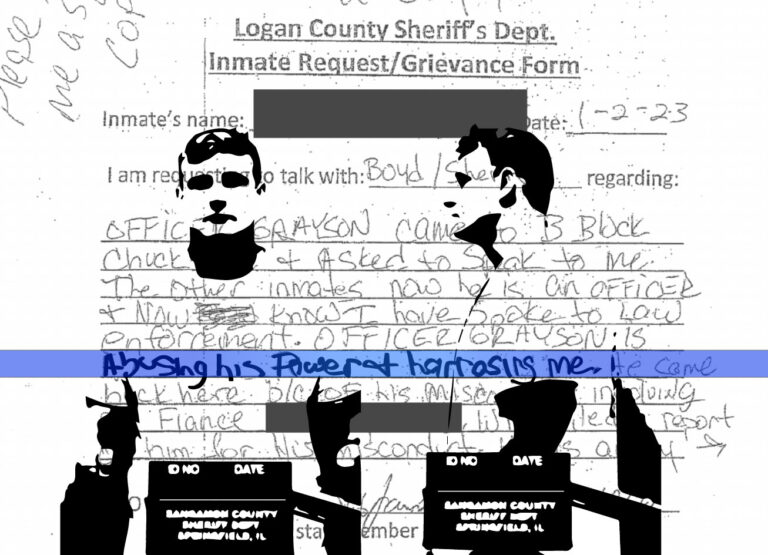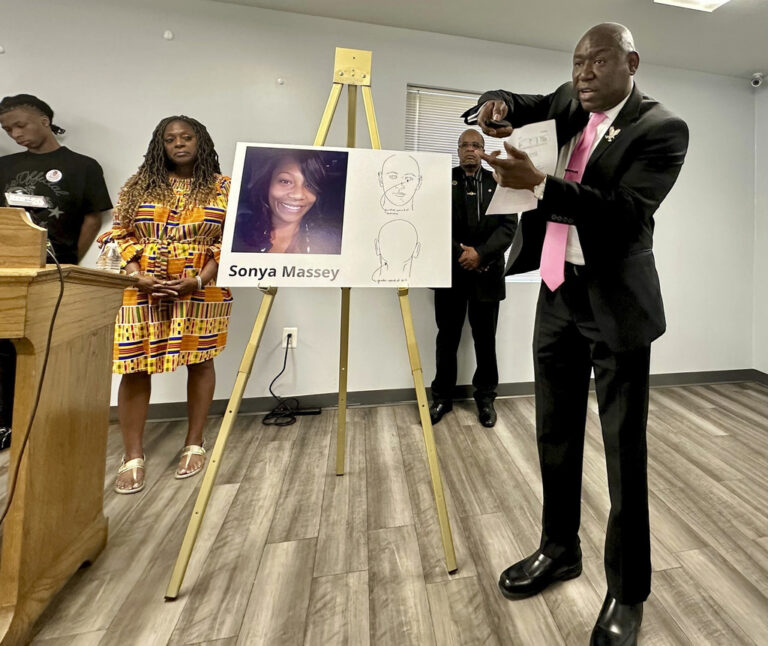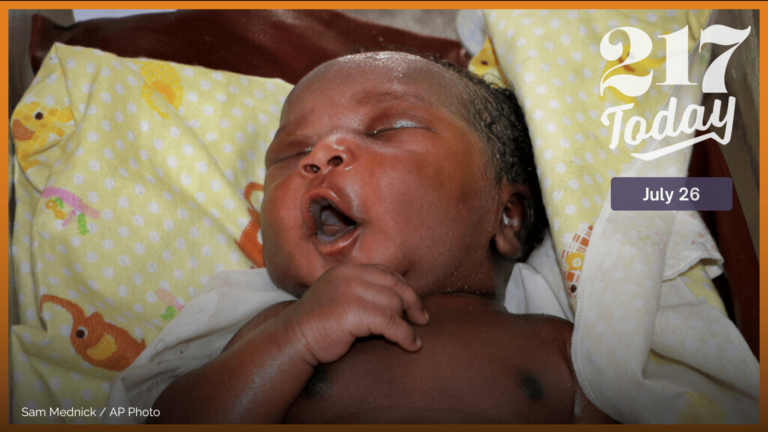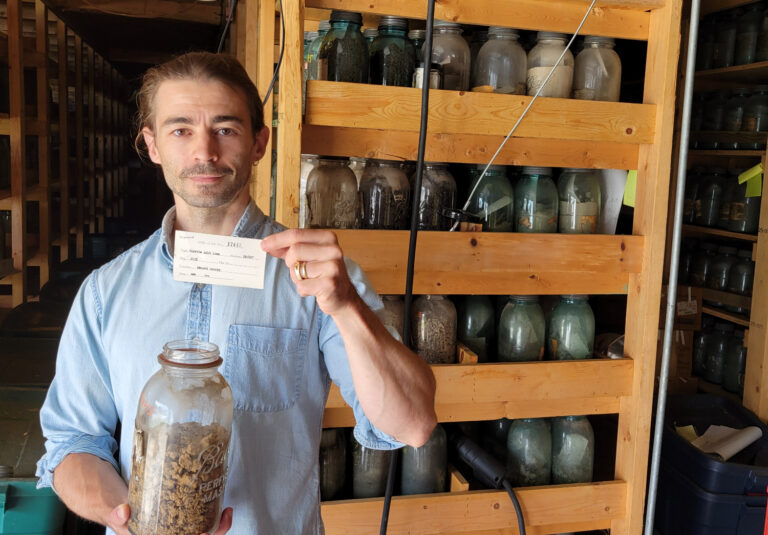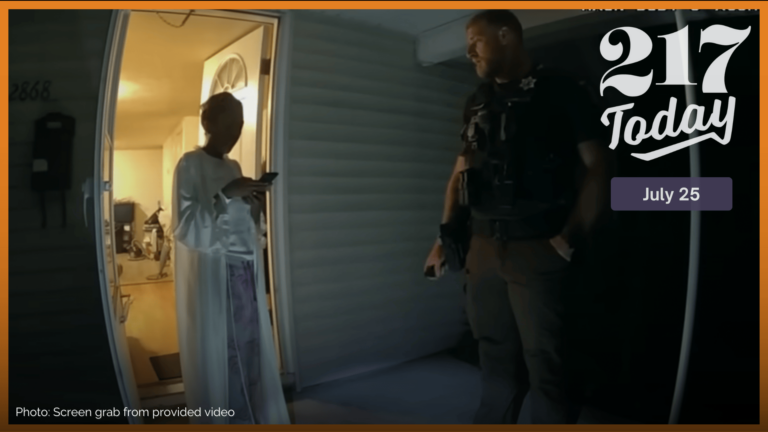URBANA – The University of Illinois Police Department is planning to increase the number of mental health professionals on staff to help officers respond to crisis calls.
Lieutenant Aaron Landers leads UIPD’s community outreach efforts, including the new mental health pilot program, known as Response, Evaluation and Crisis Health, or, REACH. He says the plan is to hire social workers who will respond together with police officers to mental health crisis calls.
The department says the social workers, referred to as crisis counselors, are not sworn officers and will not be armed.
Currently, most people in crisis get transported by police to the ER, where they’re likely to simply be released, Landers says, since hospitals have criteria for determining who requires hospitalization that are different from the standards police use to determine whether an individual in crisis should be taken to the hospital.
“The idea is: If we have [a mental health professional] that can evaluate that person on the scene, we will cut down, hopefully, a lot of our [hospital] transports,” he says.
This will allow people who are struggling to get some assistance while in the environment where they’re comfortable, “instead of having to drag them to the hospital and then kick them right back to… exactly the same place they were,” Landers adds.
Megan Cambron, a licensed clinical social worker, was hired by UIPD in January to help design the REACH initiative and bring two additional social workers on board by the end of June to serve as crisis counselors.
Cambron says crisis counselors will evaluate people in crisis, refer them to follow-up care and check in with them after the incident to provide additional support.
“We give them a call the next day and ask, ‘Hey, do you want to meet? Did you know that there are resources available for you? I can help be a contact until you get in to see somebody more long term,’” she explains.
Cambron says there are other models for getting mental health responders to the scene of a crisis, but many are plagued by delays in response times as long as 90 minutes.
“And when you’re in crisis, an hour and a half is an eternity,” she says.
With other approaches to crisis response, there’s also concern for the safety of mental health responders. By sending crisis counselors together with police, Cambron says the goal is to get help to people in the quickest and safest way possible.
Crisis counselors will also be involved in training police officers in how to appropriately respond to mental health situations.
Landers says currently, more than two-thirds of UIPD officers have completed crisis intervention training — which involves a week-long class focused on handling mental health crisis, with a focus on de-escalation. These crisis-trained officers are the ones who will co-respond to mental health-related calls with counselors in the new REACH initiative.
Some members of the campus community have expressed concerns that money going toward new mental health hires for the police department could mean less funding for campus counseling services, according to reporting by the Daily Illini.
In response, UIPD spokesperson Patrick Wade said in an email that he has a “really hard time seeing [UIPD’s mental health] services coming at the expense of other campus counseling services.”
The campus police department has separate budget and reporting lines from the Counseling Center, Wade said.
“REACH really serves an entirely different purpose, as it is designed to address the very immediate emergencies and crises that students and others are experiencing – not to provide long-term care,” Wade said. “Our goal is to get them into other long-term services like the Counseling Center.”
Nationwide and locally, advocates for police reform have called for diverting resources from police departments toward services, such as community-based mental health treatment.
Landers acknowledges that law enforcement “might not necessarily be the best fit” for crisis work.
But the reality, he says, is that officers get called in to handle crisis situations that involve mental health issues — and that is not likely to go away even if a new model was created to send help through other agencies.
Crisis calls are “not our favorite calls, because they are very complicated… [and] unpredictable,” Landers says. “But the truth is that law enforcement is responding to these calls, and they will be for pretty much the rest of our existence,” and the REACH program will help the department be better equipped to handle the calls and get people the help they need.
Discussions about expanding the co-responder initiative beyond the campus — together with C-U law enforcement agencies — are in the very early stages, Landers says.
“We are exploring the idea of having a metro unit [with] an officer from each police department in the community assigned to a co-responder model concept that would then be able to cover, not only the university campus, but the county at large,” he says. “I think a lot of it hinges on how successful our pilot program [is].”
If you or someone you know may be considering suicide, contact the National Suicide Prevention Lifeline at 1-800-273-8255 (en español: 1-888-628-9454; deaf and hard of hearing: dial 711, then 1-800-273-8255) or the Crisis Text Line by texting HOME to 741741.
Christine Herman is a reporter at Illinois Public Media. Follow her on Twitter: @CTHerman


